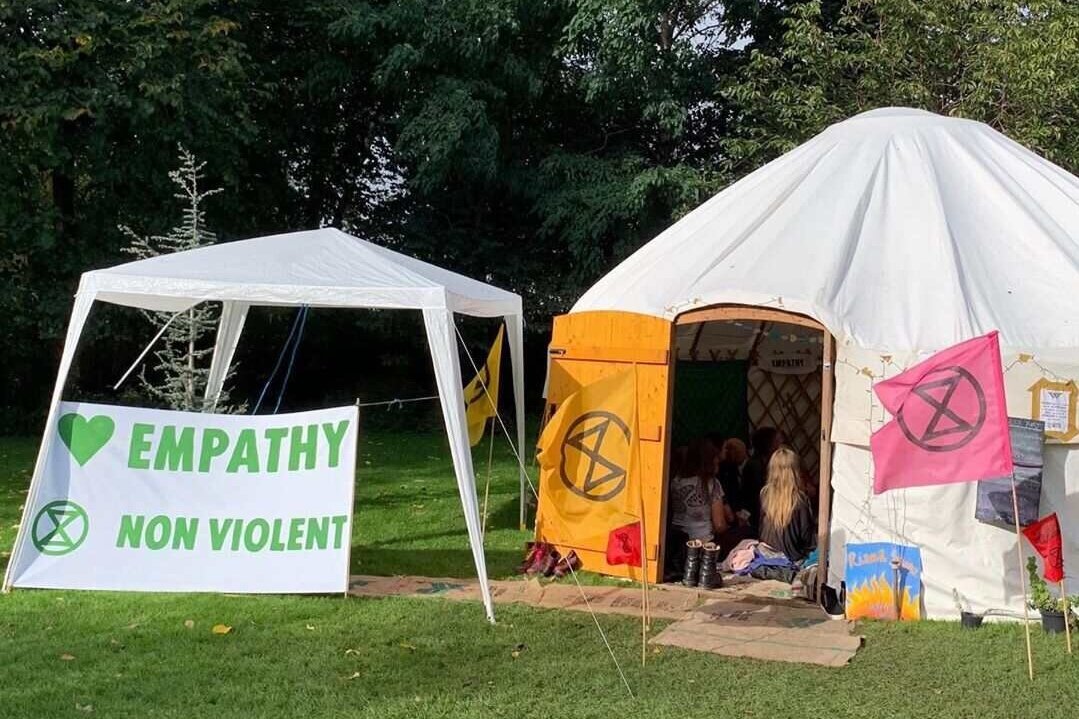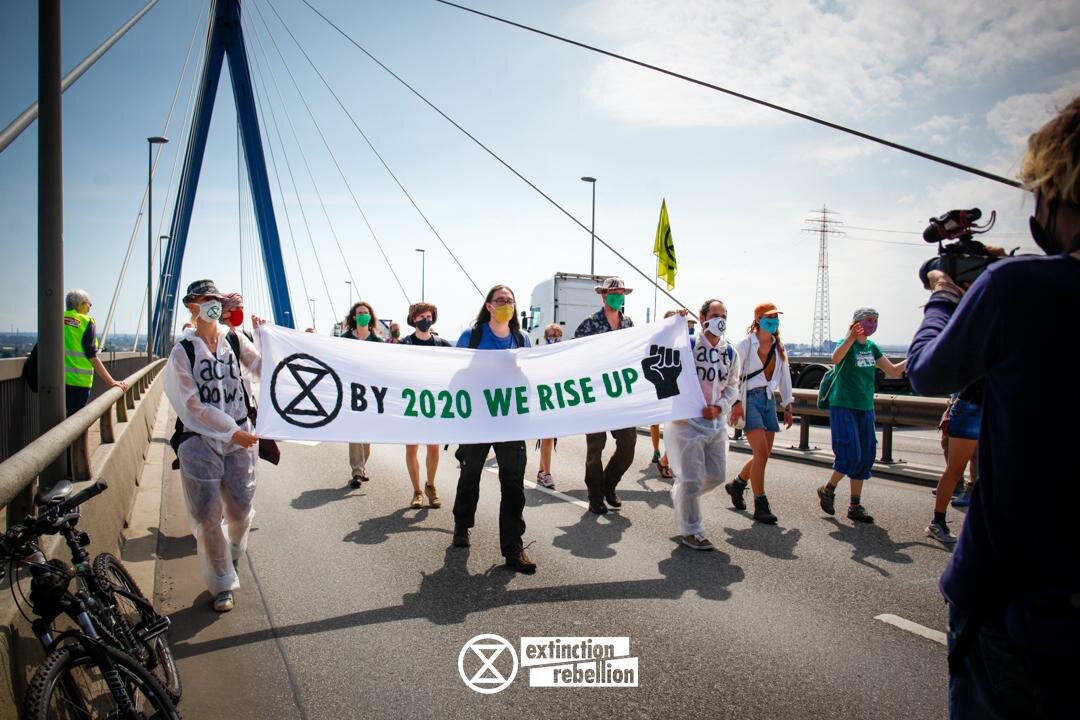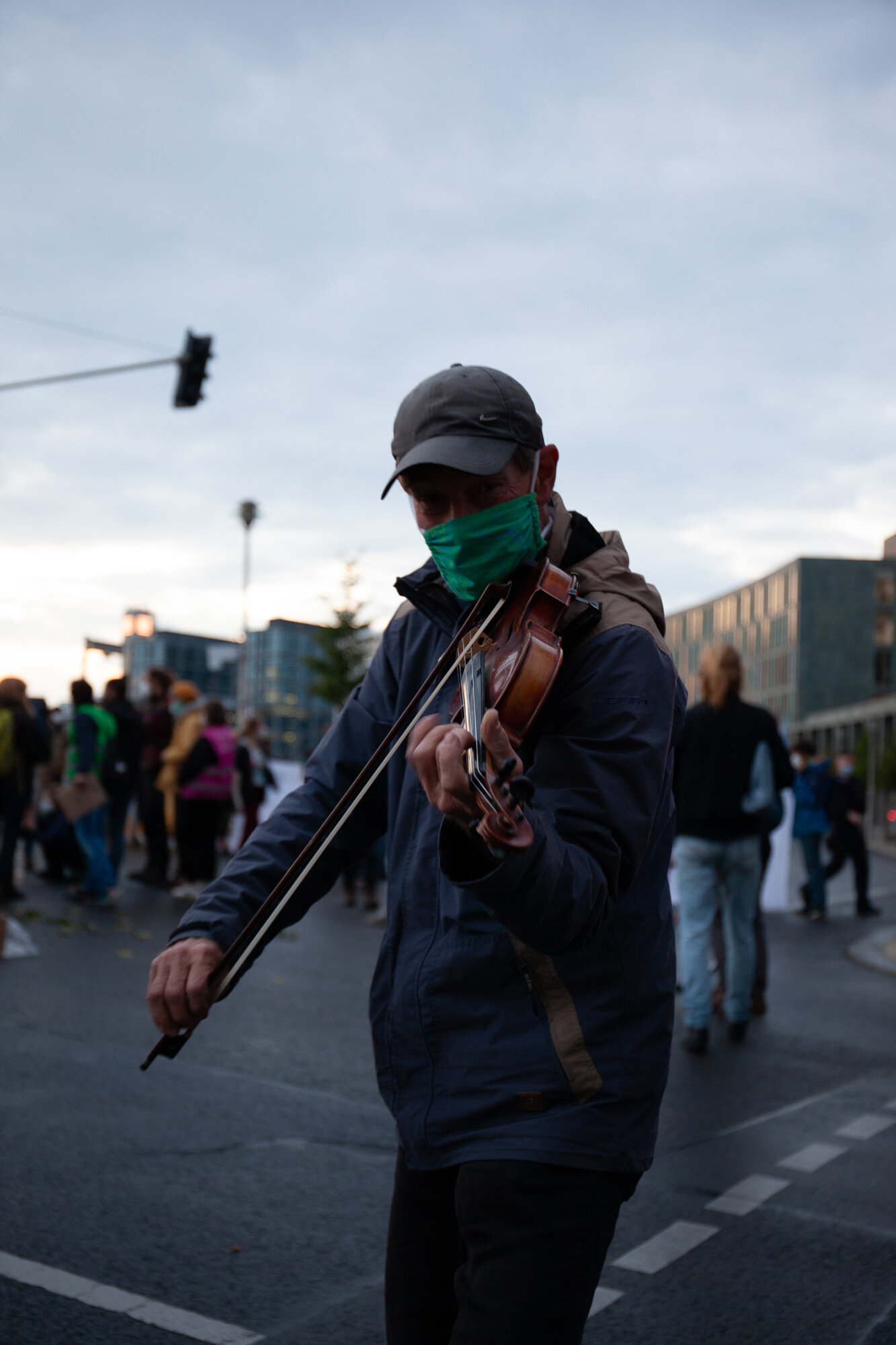community care
Regenerative Cultures look at how to create a healthy, resilient and regenerative community of people working towards system change across the world.
The strength of any community depends on good relationships built on trust, cooperation, caring and resilience.
Extinction Rebellion recognises that discrimination and lack of awareness based on gender, ethnicity, religion, class, ability and sexual orientation operates systemically to divide us.
In Extinction Rebellion we commit to nonviolence. Here some practical tips for non-violent communication:
“… feedback loops are essential for any individual and group to function at full capacity and potential. Knowing how our actions affect others and the larger whole of which we are a part can support us in learning when and how to change course to contribute to others around us”. ~ Miki Kashtan
An Empathy Circle is a structured dialogue Process based on mutual active listening.
Community is not just a sentimental dream of young people, but the next stage of evolution.
The people of the future will live in community
Resources: Peer support for Extinction Rebellion
Empathy Circles
An Empathy Circle is a structured dialogue based on mutual active listening.
An Empathy Circle is a structured dialogue based on mutual active listening.
Empathy circle handout:
Basic Empathy Circle:
1. The first person selects who they will speak to;
2. they speak about whatever
comes up for them for a set time (typically 3-5 min);
3. the listener reflects back what
they are hearing until the speaker
feels heard and understood to their satisfaction.
4. Then it is the listener’s turn to select who they will speak to and for that new listener to reflect back what they are hearing.
5. Everyone helps hold the circle process by monitoring & sticking to the steps.
Link to center for building a culture of empathy
“Listening is an art that requires attention over talent, spirit over ego, others over self.” Dean Jackson
Conflict resilience systems
Es beginnt alles mit einer Idee.
What do we do when conflict happens, when things stop working, when differences show up?
Conflict is community owned.
Conflict belongs to the whole community, because it affects the whole community.
The first step to approaching conflict situations is to put in place support.
This means that support is in place for the person involved ahead of a conflict, and they know where to turn. If you notice someone in conflict and there is not support in place, you can offer them neutral listening space and hold that without ‘taking a side’.
A Restorative Circle is a community strategy for engaging with conflict. It offers a chance to bring people together in dialogue.
“… feedback loops are essential for any individual and group to function at full capacity and potential. Knowing how our actions affect others and the larger whole of which we are a part can support us in learning when and how to change course to contribute to others around us”. ~ Miki Kashtan
EXPLORING CONFLICT
We find great value and learning in discussions that sow seeds for looking at conflict in a different way. Opening dialogue and a space to hear each other without judgement.
Questions you can ask yourself and your group:
What does ‘conflict’ mean to you?
How do you know you’re in conflict?
Consider what goes on for you when you’re faced with conflict.
What do you experience physiologically and/or psychologically?
Why is it sometimes so scary?
What helps and doesn’t help in responding to conflict?
Think about the attitudes, mindsets and actions that you’ve experienced as working/helping or not working/helping.
What’s your dream about how to respond to conflict?
Your thoughts here will shape any system that you might create.
There is so much value in rebels upskilling themselves in relation to conflict and communication.
Active listening is a fantastic skill!
Giving someone your presence and ear without judgment is both simple and profound. Practice this in your conversations and see how it feels. You can even repeat what the person says for clarity - “What I’m hearing is…” - and check that you heard correctly.
“Conflict is only dangerous when we try to get away from it” Dominic Barter
Nonviolent Communication
What is nonviolence?
Nonviolence works because it inspires, builds trust and opens doors for large numbers of people to get involved and express themselves. It also models the world we want to live in by committing to causing no harm.
Beyond blame and judgement, nonviolence recognizes that all of us are part of this system and that we live interdependently (what happens to you affects me and vice versa) and all of our futures are at stake.
Some core elements of nonviolence are:
Non harming
Moving beyond blame and judgement to seek to understand the position and perspective of the
other
Truthtelling from a place of Courage, compassion and love.
Interdependence
Self-connection or inner peace
”Nonviolence is the courage to speak truth with love...and love is the full radical acceptance of the humanity of every person.” - Miki Kashtan
“All that has been integrated into NVC has been known for centuries about consciousness, language, communication skills, and use of power that enable us to maintain a perspective of empathy for ourselves and others, even under trying conditions.”












